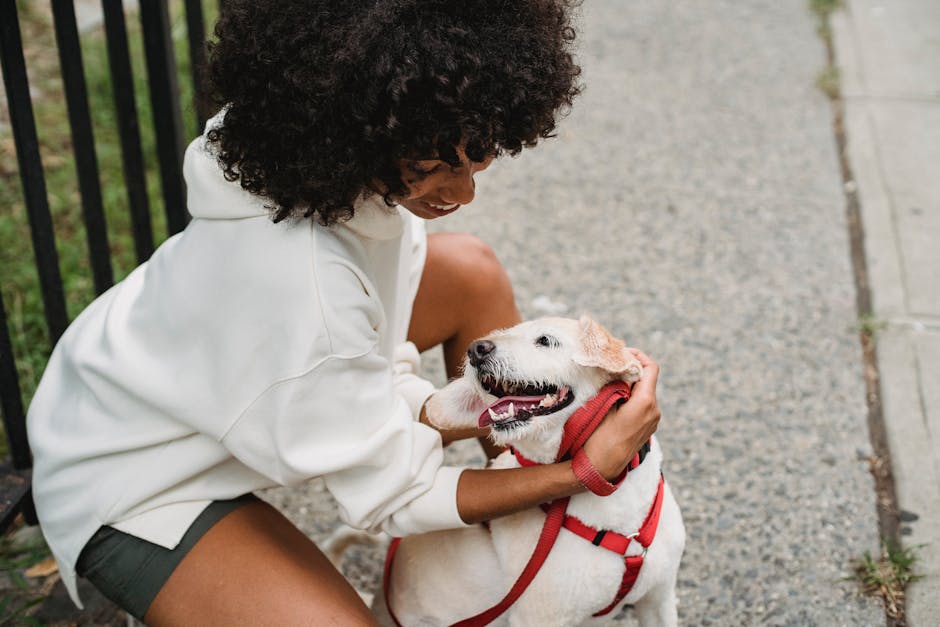Embarking on the rewarding journey of pet ownership invariably involves substantial alterations to one’s lifestyle. This commitment isn’t merely about acquiring a furry, feathered, or scaled companion; it’s about integrating a new member into the household, demanding adjustments in schedules, finances, and even personal preferences. Understanding these changes beforehand can empower prospective pet owners to make informed decisions and prepare for the transformative impact a pet can have.
Initial Adjustments: Beyond the Cute Factor
The most immediate changes often revolve around the daily routine. A dog owner, for instance, will require dedicated time for walks, feeding, and grooming. These tasks necessitate adjustments to daily schedules, potentially altering work hours, social engagements, and even sleep patterns. Similarly, cat owners will need to establish routines for feeding, litter box maintenance, and playtime, which may necessitate reorganizing household spaces and daily tasks. Even fish owners face new responsibilities, from regular water changes to ensuring appropriate lighting and temperature. Crucially, these adjustments must be considered from the outset, and not simply as an afterthought.
Financial Implications: Unexpected Expenses
Pet ownership brings a significant financial commitment beyond the initial purchase price. Routine veterinary care, including vaccinations, checkups, and potential emergencies, can mount up quickly. Food costs, grooming expenses, and even specialized pet supplies, like carriers or bedding, can significantly impact a household budget. Individuals considering a pet should thoroughly assess their current financial situation and factor in these recurring costs to avoid financial strain. Budgeting for potential veterinary emergencies is essential, as unexpected illnesses or injuries can lead to substantial vet bills.
Home and Lifestyle Modifications: A Holistic Approach
Bringing a pet into the home necessitates thoughtful home modifications. A dog may require a designated area for sleeping and play, potentially affecting furniture placement or the need for pet-proofed areas. A cat may prefer climbing structures or a quiet corner. These adjustments to existing living space are crucial to ensuring a safe and comfortable environment for both the pet and the owner.
Changes in Social Activities: Prioritizing Responsibilities
Pet ownership can reshape social activities. Opportunities for spontaneous outings or extended social gatherings may be curtailed due to the need for consistent pet care. This change is not necessarily negative; it can motivate owners to prioritise routine care, which can be beneficial. However, it’s vital to communicate pet needs to friends and family when scheduling social events to avoid conflicts and ensure everyone feels accommodated. Adjustments to social activities can also encourage owners to embrace new kinds of social engagement, connecting with other pet owners and fostering a sense of community.
Emotional Impacts: Bonding and Responsibility
The emotional impact of pet ownership is profound. The unconditional love and companionship a pet provides can be incredibly fulfilling, enriching life in countless ways. However, this bonding process also involves a substantial degree of responsibility. Owners must prepare to dedicate time and energy to their pet’s well-being, which includes addressing behavioral issues, providing proper exercise, and ensuring ongoing emotional care. Recognizing and understanding the emotional connection with a pet, coupled with the responsibility that comes with it, is an essential aspect of pet ownership. This commitment can sometimes lead to increased patience and a renewed appreciation for the simple things in life.
Impact on Health and Wellbeing: Physical and Mental Benefits
Interestingly, pet ownership often has positive effects on both physical and mental health. Walking a dog, for instance, encourages physical activity. Caring for a pet fosters a sense of purpose and routine, potentially reducing stress and promoting mental wellbeing. Studies have shown that interacting with pets can lower blood pressure and even boost the immune system. However, it’s crucial to acknowledge that the responsibility for a pet’s well-being can, at times, lead to increased stress. A thoughtful assessment of one’s own health and emotional capacity is advisable.
Adaptability and Planning: Key to a Successful Partnership
Ultimately, adapting to the changes in lifestyle that pet ownership entails is critical to a harmonious relationship between owner and pet. Prospective pet owners must weigh the long-term commitment, recognizing that pet care isn’t just a momentary decision; it’s a continuous process. Careful consideration of lifestyle, finances, home environment, and emotional capacity is paramount to ensuring a successful, enriching experience for both the pet and the owner. Open communication, proactive planning, and a genuine desire to adapt can significantly contribute to a positive outcome. The key is to approach pet ownership with realism, acknowledging that while rewarding, it brings about alterations to one’s pre-existing routine.
